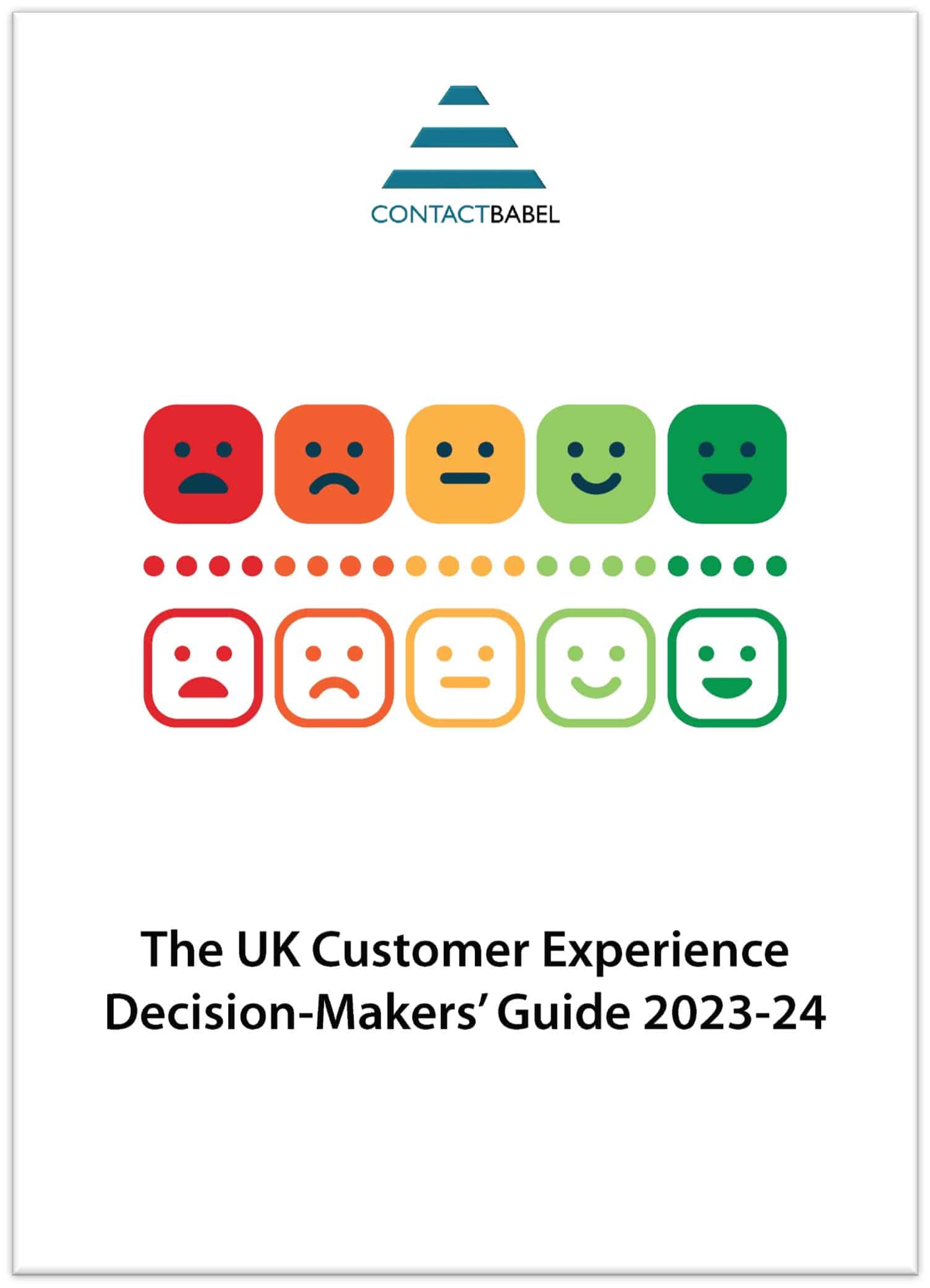
“The 2023-24 UK Customer Experience Decision-Makers’ Guide” is based on research with 209 UK organisations and 1,000+ interviews with UK consumers.
To download this report, and to gain free access to all of ContactBabel’s research and analysis, please complete the registration form at the bottom of the page.
Report Contents
How Do Organisations Compete?
CX Budget, ROI & Investment
Technology
What Does CX Mean to a Customer?
Omnichannel and the Customer Experience
CX Benchmarking Methods – Use and Effectiveness
CX Developments & Future Strategy
To download “The 2023-24 UK Customer Experience Decision-Makers’ Guide”, as well as many other research reports, please complete the registration form below.
After this, please login and you will have access to all of ContactBabel’s free end-user research and analysis by selecting the “RESEARCH” tab and choosing your reports.
If you have already registered, please log in here.
"*" indicates required fields
© ContactBabel Ltd | 7 Abberwick Walk, Gosforth, Newcastle-upon-Tyne, NE13 9AY
Site by Wizbit